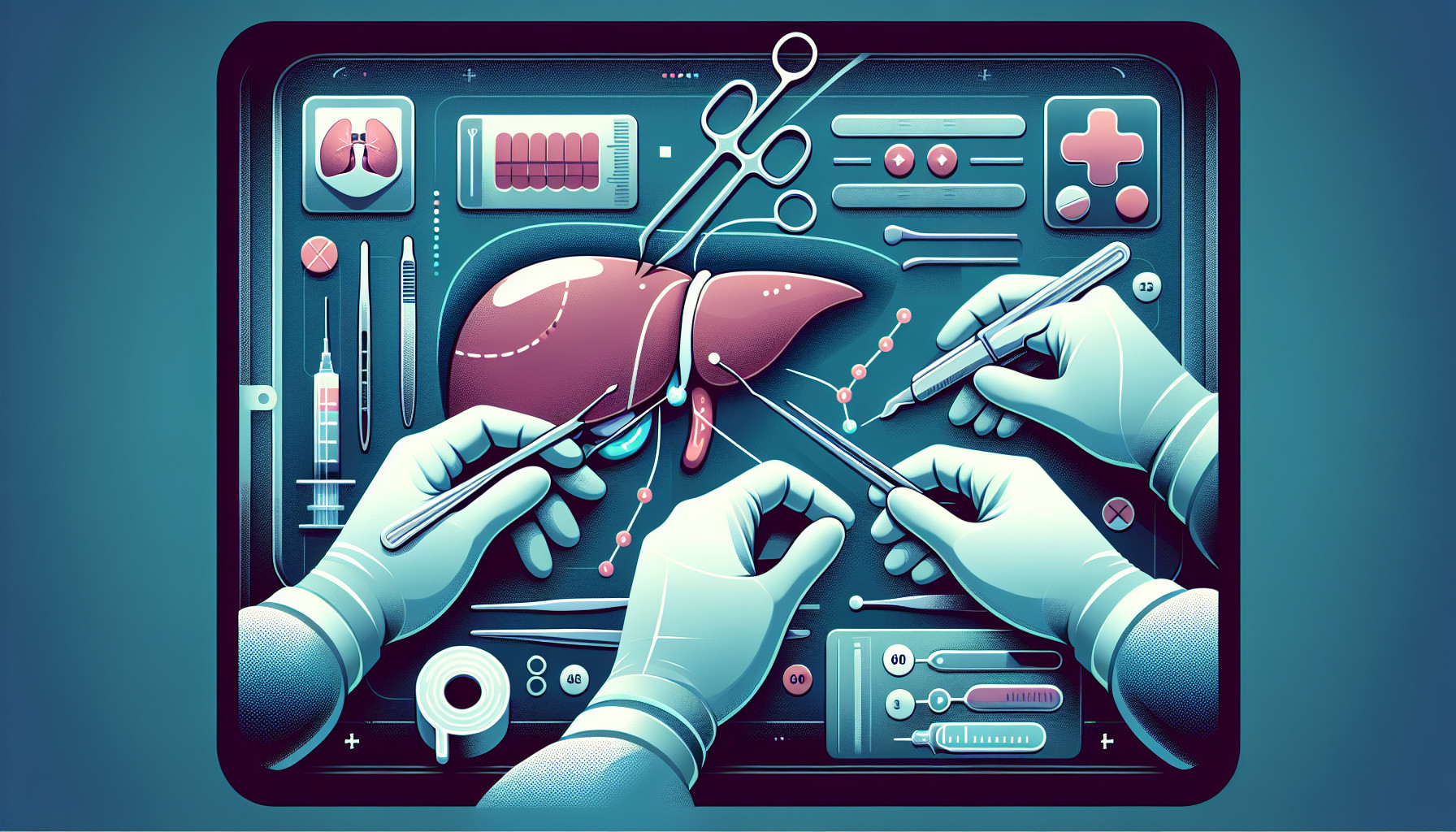Our Summary
This research paper is about a study where the authors reviewed their practice of liver pathology - the study of liver diseases - and its impact on patients’ treatment. They used a tool, called the audit template, provided by the UK Royal College of Pathologists to evaluate their work. They did this by looking at the liver biopsy reports (a biopsy is when a small piece of tissue is removed to examine it for disease) from their center in the year 2019.
Out of 135 eligible biopsies, they selected 60 for review. Most of these biopsies were core biopsies where a small cylindrical sample is taken, and two were laparoscopic wedge biopsies where a small wedge-shaped piece is removed using a special tool.
Looking at the quality of the biopsy samples, 93% of them met the standard criteria set by the Royal College of Pathologists. When they looked at how useful these biopsy reports were in managing the patient’s disease, they found that 95% of them were judged to be helpful. Around 42% of these reports helped in making the exact diagnosis and 80% of them changed the way the patient was being treated.
In conclusion, they found the audit templates provided by the Royal College of Pathologists to be very useful. They also highlighted the importance of medical liver biopsies in diagnosing and treating patients with liver disease.
FAQs
- What is the purpose of the audit templates published by the UK Royal College of Pathologists (RCPath)?
- What portion of the medical liver biopsies met the RCPath adequacy criteria in the 2019 audit?
- How do medical liver biopsies impact the management of patients with liver disease, according to the audit?
Doctor’s Tip
One helpful tip a doctor might give a patient about liver biopsy is to make sure to follow any pre-procedure instructions provided by the healthcare team, such as fasting before the procedure. This can help ensure a successful and accurate biopsy result. Additionally, it is important to discuss any concerns or questions with the healthcare team before the procedure to help alleviate any anxiety or uncertainty.
Suitable For
Patients who are typically recommended liver biopsy include those with:
- Suspected liver diseases such as hepatitis, cirrhosis, fatty liver disease, autoimmune liver disease, or liver cancer.
- Abnormal liver function tests with no clear diagnosis.
- Monitoring the progression of liver disease.
- Evaluating the effectiveness of treatment for liver disease.
- Assessing the extent of liver damage.
- Investigating the cause of unexplained symptoms such as jaundice, abdominal pain, or fluid retention.
- Evaluating the possibility of liver transplant in patients with end-stage liver disease.
Timeline
Before liver biopsy:
- Patient presents with symptoms of liver disease, such as jaundice, abdominal pain, or abnormal liver function tests.
- Patient undergoes initial evaluation, including medical history, physical examination, and laboratory tests.
- Imaging studies, such as ultrasound or CT scan, may be performed to assess the liver.
- After discussion with the patient, healthcare provider recommends liver biopsy to further evaluate the liver disease.
After liver biopsy:
- Patient is informed about the procedure, risks, and benefits of liver biopsy.
- Patient may undergo pre-procedure testing, such as blood tests and imaging studies.
- Liver biopsy is performed, either as a core biopsy or laparoscopic wedge biopsy.
- Pathologist evaluates the biopsy specimen and generates a report.
- Healthcare provider reviews the pathology report and discusses the findings with the patient.
- Treatment plan is adjusted based on the biopsy results, which may include medication changes, further testing, or referral to a specialist.
- Patient is monitored for any complications from the liver biopsy, such as bleeding or infection.
What to Ask Your Doctor
- What is the reason for recommending a liver biopsy in my case?
- What information will the liver biopsy provide that other tests cannot?
- How will the biopsy be performed? Will I need to stay in the hospital?
- What are the potential risks and complications associated with the liver biopsy procedure?
- How long will it take to get the results of the liver biopsy?
- What will the results of the liver biopsy help determine in terms of my treatment plan?
- Will I need to make any changes to my medication or lifestyle after the liver biopsy?
- Are there any specific instructions I need to follow before or after the liver biopsy procedure?
- How often will I need to undergo liver biopsies in the future, if at all?
- Are there any alternative tests or procedures that could provide similar information without the need for a liver biopsy?
Reference
Authors: Seth S, Forrest EH, Morris JM, Heydtmann M, Konanahalli P, Kohnen G, Oien KA. Journal: J Clin Pathol. 2022 Jul;75(7):498-502. doi: 10.1136/jclinpath-2020-207366. Epub 2021 May 26. PMID: 34039666
